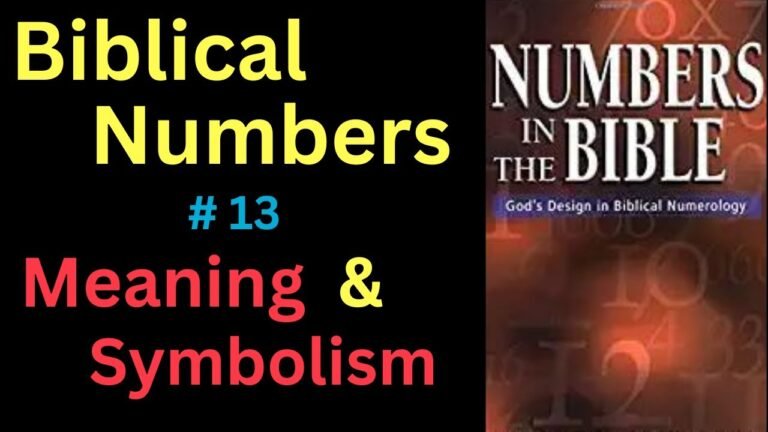Exploring Unusual Biblical Names: Unique Choices for Modern Families
In a world filled with common names, the allure of unusual biblical names captivates many parents seeking something unique for their children. These names, rich in history and meaning, often carry stories of resilience, faith, and cultural significance. From the melodic sounds of Hezekiah to the striking presence of Zaphnath-Paaneah, these distinctive choices not only stand out but also provide a profound connection to ancient narratives. Exploring these unusual biblical names can inspire a fresh perspective on identity and heritage, making them an intriguing option for the modern family.
- Unusual biblical names often reflect unique cultural, historical, or linguistic contexts, providing insights into the lives and beliefs of ancient communities.
- These names, such as Jabez or Hezekiah, can carry significant meanings and symbolize particular attributes or divine qualities, making them intriguing for study and exploration.
What is the least common name found in the Bible?
Among the many names found in the Bible, some stand out for their rarity in today’s society. In the Old Testament, unique names such as Haman, Joram, and Adino are seldom heard among boys, while girls bear equally uncommon names like Bilhah, Zibiah, and Sherah. The New Testament contributes its share of rare names, with Joses and Philemon leading the pack for boys, and Apphia and Tryphena for girls, showcasing a fascinating variety of biblical heritage that remains largely unexplored in contemporary naming trends.
What are some distinctive names found in the Bible?
When searching for unique biblical names that stand out, options like Zillah and Moab offer a refreshing twist. Alongside these, names such as Boaz, Gaius, and Jericho not only carry rich historical significance but also provide a distinctive flair for modern-day use. Other intriguing choices include Joah, Keturah, Omri, Tirzah, and Zipporah, each with its own story and meaning, making them perfect for parents seeking something memorable.
Expanding the scope beyond the more familiar, names like Boaz, Linus, and Adah may be considered unique in the US but hold a place of prominence in other cultures. These names bridge the gap between tradition and contemporary appeal, allowing for a connection to heritage while still feeling fresh. Choosing a unique biblical name can create a lasting identity that resonates with both personal and historical significance.
What is the most complex name found in the Bible?
Among the many intriguing names found in the Bible, Mahershalalhashbaz stands out as one of the most complicated. This name, given by God to the prophet Isaiah’s son, carries a profound meaning, translating to “swift is the booty, speedy is the prey.” Its complexity not only reflects the rich linguistic heritage of biblical texts but also highlights the significance of divine prophecy during tumultuous times. In a world filled with names that often convey simple meanings, Mahershalalhashbaz serves as a reminder of the depth and intricacy woven into biblical accounts.
Rediscovering Timeless Treasures for Today’s Children
In an age filled with fast-paced technology and fleeting trends, there is a growing movement to reconnect children with the timeless treasures of the past. Classic stories, traditional games, and handcrafted toys offer not only entertainment but also valuable lessons in creativity, imagination, and social interaction. By introducing these enduring elements into modern play, we nurture a sense of curiosity and appreciation for history, helping children form a deeper connection with the world around them.
Rediscovering these treasures can transform the way children engage with their environment, encouraging them to explore beyond screens and instant gratification. By fostering a love for reading through beloved tales and sparking camaraderie with cooperative games, we cultivate essential skills like empathy and problem-solving. As we embrace these timeless experiences, we empower today’s children to build lasting memories and relationships while instilling values that will stay with them for a lifetime.
Naming with Purpose: Ancient Inspiration for New Generations
In a world where names carry immense significance, the practice of naming has evolved into an art form that transcends generations. Drawing inspiration from ancient cultures, modern parents seek names that not only sound beautiful but also embody rich histories and meanings. This resurgence of interest in traditional names is a testament to the enduring power of language and the desire to connect with one’s roots, allowing new generations to carry forward the wisdom of their ancestors.
Ancient civilizations, from the Egyptians to the Greeks, meticulously crafted names that reflected virtues, natural elements, and divine connections. By reviving these timeless names, families can instill a sense of identity and purpose in their children, grounding them in a narrative that stretches back through the ages. Each name tells a story, encapsulating the hopes, dreams, and values that parents wish to pass on, creating a bridge between the past and the future.
As we navigate the complexities of modern life, the act of naming becomes a profound gesture of heritage and aspiration. By choosing names rooted in ancient traditions, today’s families can celebrate their lineage while inspiring a sense of belonging and strength in their children. This purposeful approach to naming not only honors the wisdom of the past but also empowers the next generation to forge their own paths with confidence and intention.
Uncommon Names with Rich Stories: A Family’s Guide
Choosing a name for your child can be a journey filled with significance and history. Uncommon names, often steeped in rich stories and cultural heritage, provide a unique opportunity to connect your family to a wider narrative. Each name carries its own tale, offering a glimpse into traditions, hopes, and values that can inspire your child throughout their life. By opting for a name that stands out, you not only celebrate individuality but also honor the past, weaving a tapestry of family legacy that can be cherished for generations.
Delving into the world of uncommon names allows you to explore a treasure trove of meanings and origins. From names inspired by nature to those rooted in literature or mythology, each choice can reflect the aspirations you hold for your child. As you sift through these distinctive options, consider how the stories behind them can shape your family’s identity. In doing so, you create a meaningful connection that transcends time, ensuring that your child’s name is not just a label, but a vibrant part of their personal story.
Embrace the Unique: Biblical Names for Modern Tastes
In a world where individuality reigns supreme, biblical names offer a timeless charm that resonates with modern sensibilities. These names not only carry rich histories and profound meanings but also blend seamlessly into contemporary culture. From the strong and classic Samuel to the elegant and whimsical Seraphina, each biblical name invites a sense of heritage while remaining fresh and distinctive. Embracing these unique choices allows parents to celebrate their faith and connection to tradition, all while giving their children names that stand out in today’s diverse landscape.
From Scripture to Nursery: Choosing Distinctive Names Today
In a world where individuality is celebrated, the choice of a child’s name has become an opportunity for parents to express their values and beliefs. Many are turning to Scripture for inspiration, seeking names that carry profound meaning and historical significance. Names like Elijah, Miriam, and Naomi not only evoke a rich biblical heritage but also resonate with modern sensibilities, bridging the gap between tradition and contemporary identity.
As families navigate the myriad of options available, distinctive names offer a chance to stand out in a sea of common choices. Unique names can foster a sense of belonging and pride, as they often reflect cultural backgrounds, familial connections, or personal aspirations. By drawing from the timeless narratives and characters found in Scripture, parents can select names that not only honor their faith but also inspire their children to embrace their unique paths in life.
Ultimately, the decision to choose a name rooted in Scripture is about more than just aesthetics; it’s a meaningful gesture that can shape a child’s identity. Each name carries a story, a legacy, and a reminder of the values that parents hope to instill. As we move forward in an ever-evolving society, these distinctive names serve as anchors, connecting the past with the present and guiding future generations toward a deeper understanding of themselves and their heritage.
Exploring unusual biblical names unveils a rich tapestry of history, culture, and significance that often goes overlooked. These names carry stories of resilience, faith, and identity, inviting us to delve deeper into their meanings and the lessons they impart. By embracing these unique names, we not only honor their origins but also enrich our own understanding of the diverse narratives woven throughout scripture. As we continue to uncover these hidden gems, we celebrate the enduring impact of these names on our lives and communities today.







